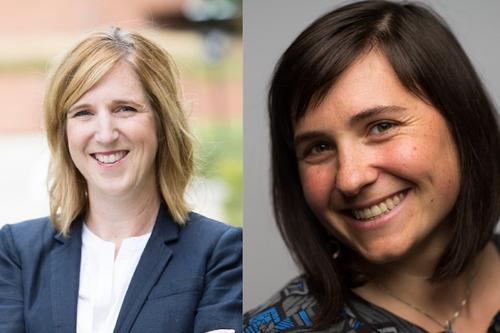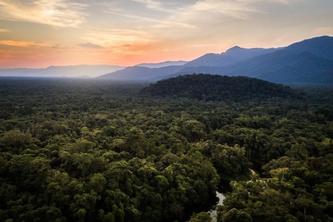
The 26th UN Climate Change Conference of the Parties (COP26) is scheduled for October 31 through November 12 in Glasgow, Scotland. COP26 will bring countries together to discuss their plans to address climate change over the coming decade.
University of Minnesota climate science experts Jessica Hellmann and Heidi Roop are available to provide comments pre, current and post-COP26 on the significance of the conference to address climate change, including the conference’s goals.
Jessica Hellmann, Ph.D.
On the fact that the world has been negotiating climate change for decades:
“I’ve studied climate science and I’ve taught about it often – and every year at the time of the UN meeting, my students and I hope this time will be different. I like to remind students that this year’s meeting is the 26th time the international community has gotten together to try to take action on climate change – that’s a collection of meetings that’s gone on longer than most undergraduates have been alive. Knowing that the problem still looms so large after 26 years, it’s hard not to be discouraged. At the same time, difficult issues and challenging problems often require repeated attention and fits and starts at solutions, and our collective awareness of climate change has grown from scientific obscurity to mainstream concern.”
That investments to tackle climate are necessary but also can bring positive change:
“My research on the consequences of climate change and the difficulties of living through it tells me that taking action on climate change is essential to preserve planetary systems we love and need. As a worker, mortgage and tax payer, and parent, I also understand that change is difficult and scary. But when I look at the carbon-cutting technologies and approaches that have emerged in the past decades, and still more coming online with the right incentives, I see an exciting and prosperous future. And as a scientist and citizen, I can’t see any reason why we aren’t aggressively pursuing that future.”
On the several dimensions of climate change:
“The threats of climate change to local communities and global societies are immense, and this is why the global negotiations on climate change have taken on so many different features and approaches over the years. Of course, countries will be negotiating greenhouse gas reduction commitments and approaches in Glasgow – these are the most important actions we must take. But other parts of the meeting will be talking about adaptation, or approaches for living through climate change best we can, and financing, raising capital for climate change strategies around the world. These issues are also critically important issues so that we can navigate the globe through profound physical and social changes.”
Heidi Roop, Ph.D.
“The eyes of the world will be on our global leaders as they decide whether our global climate commitments will be sufficient to address the urgency and scale of action that the science, and increasingly our lived experiences, very clearly show are needed.
"COP26 represents a critical opportunity for nations to put into place firm, actionable commitments that will help reduce emissions of heat trapping gases while making the necessary investments to help prepare our communities, economies and ecosystems for the changes we know we’ve already set in motion.
"While meetings like these may seem far away and irrelevant, the conversations and commitments made, and honored, following this meeting have implications for every nation and person on the planet. COP26 is happening after a year of unprecedented climate-related disasters and on the heels of a new Intergovernmental Panel on Climate Change report that outlines very clearly the challenges and the opportunities in front of us:
- It’s us. It is unequivocal that humans have warmed the planet.
- It’s here. Human induced climate change is already affecting many weather and climate extremes.
- We committed to a certain amount of change through the emissions we’ve already produced and so we must prepare.
- The more greenhouse gases we emit, the warmer it will get and the worse the impacts will be.
- We still choose. The amount of future emissions will determine the extent of the climate impacts we will all experience. That decision is still largely up to us.
- We have no time to waste.
"Commitments made by participating nations in COP26 will signal the future we are choosing – will we reduce our emissions and adequately prepare? Or will we continue to let critical time pass us by? This is why the eyes of the world are watching…with cautious optimism.”
Jessica Hellmann is the director of the Institute on the Environment and the Ecolab Chair in Environmental Leadership. She is an expert on global change ecology, climate adaptation and the reduction of greenhouse gas emissions. She counsels state and national governments on natural resource management so that future generations can enjoy the beauty and function of nature as we do today. Hellmann also works with governments and corporations to build investment in climate change adaptation.
Heidi Roop is the director of the Minnesota Climate Adaptation Partnership, an assistant professor of climate science in the College of Food, Agricultural and Natural Resource Sciences, and an Extension Climate Science and Adaptation Specialist. She is an expert in climate science and multi-sectoral approaches to climate adaptation. Heidi actively collaborates with a range of local, state, federal governments, Tribes, communities and businesses around the United States to help them prepare for the diverse impacts of climate change.
Download high-resolution images of Jessica Hellmann and Heidi Roop.
- Categories:
- Agriculture and Environment
- Climate Change





